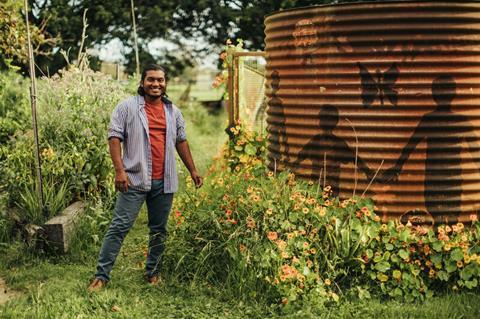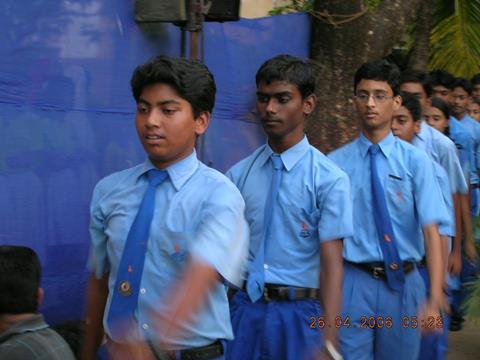This World Hunger Day, there are more people than ever trapped in food poverty. Read one man’s story of finding hope in Christ and why he thinks education, as well as food, is essential in breaking the cycle.

Over the course of the Covid-19 pandemic that has swept our world, the number of people at risk of starvation has nearly doubled. It now stands at over 270 million, a figure so huge and shocking that it is hard to truly comprehend. But each number is an individual story: a father, a mother, a child. And on World Hunger Day, it is impossible for me to forget that one of those children used to be me.
A familiar feeling
The slum community in Asia, where my family lived, housed 10,000 people - with only two toilets and one tap. Growing up, hunger was a familiar feeling. The gut gnawing emptiness of going to bed with only water to fill your stomach is something you never forget.
Poverty is being scared to dream that your life could be better
Every day my father went out to find work. Every day he would desperately try to provide for us, but it wasn’t always possible. On the days he couldn’t find work, we went hungry. But that wasn’t the worst thing about our situation. Many people think poverty is about a lack of resources. But that isn’t what poverty truly is. Poverty is being in a state of hopelessness, a state of powerlessness – being scared to dream that your life could be better.
No work, no food
Now, as a result of the pandemic, millions more children are left feeling this way, without a stable family income, uncertain if they will have food for today, let alone tomorrow. The reality for most people living in extreme poverty around the world is that if they don’t work, they don’t eat - so loss of income has a devastating and immediate impact. The pandemic, and the lockdowns that have accompanied it, have hit economies across the world hard. For many, the worst is far from over. According to the UN World Food Programme’s live hunger map, 904 million people across 93 countries do not have enough to eat, with 26 countries at a high or moderate risk of further deterioration.
The magnitude of the problem is overwhelming, but change is possible. I know that because it happened to me. When I was four years old, people from the local church came to my community and told us they wanted to help. Facilitated through the work of Compassion UK, a child sponsorship charity, they not only met my physical needs but provided me with an education. I remember my parent’s excitement; suddenly the future held hope that change was possible.
The gift of education
I became the first child in my family to go to school - and one of the first in my entire community. When I received my first school uniform, my father helped me rip open the packaging like a child receiving their Christmas gift. Education was such a huge opportunity, not just for me but for my whole family. One of my fondest memories is showing my parents how to write their names! I received nutritious meals during the day, hygiene supplies for the family and the opportunity to see a doctor when I was ill. I eventually graduated with a 1st class master’s degree in business.

It was my local community, through the local church, who were best positioned to understand and meet my family’s needs. Now more than ever, we need people on the ground who know the physical, emotional and spiritual needs of their community - who know how to give them hope. The drivers of food insecurity in the aftermath of the pandemic are complex, and the solutions need to be holistic if we are going to bring lasting change.
I know change is possible, because it happened to me!
Breaking the cycle
Food is a basic, fundamental human need and a crucial building block in breaking the vicious cycle of poverty. But it is only ever one step. Whilst I needed food to thrive and concentrate at school, to grow and care for my family, it was education that brought hope and empowered me to make positive changes, not just in my life but in the life of my family and my community.
It is my passion to bring that hope to others and break the cycle of poverty where there is one. I started a charity, Pursuit International, that helps children and young people living in residential care in India become independent and self-sufficient adults. The pandemic has presented new challenges in the fight against poverty. There have been widespread job losses, hygiene concerns and heightened risks of domestic abuse. But there is hope.
Many organisations, like Compassion UK and its church partners, have long-recognised the need to empower children and their communities, not just to survive in the face of poverty and crises like Covid-19, but to thrive. For some, it’s helping them to generate an income, equipping parents and care givers with the tools and training to start their own business. For others, it’s providing the seeds and education to enable them to establish small farms to feed themselves and sell surplus produce. Across the world, people are being empowered to make positive changes to be freed from the poverty of hopelessness. Even in the face of a pandemic, they are starting to dare to dream.
To find out more about Compassion, go to compassionuk.org
To find out more about Pursuit International, go to pursuitinternational.org































